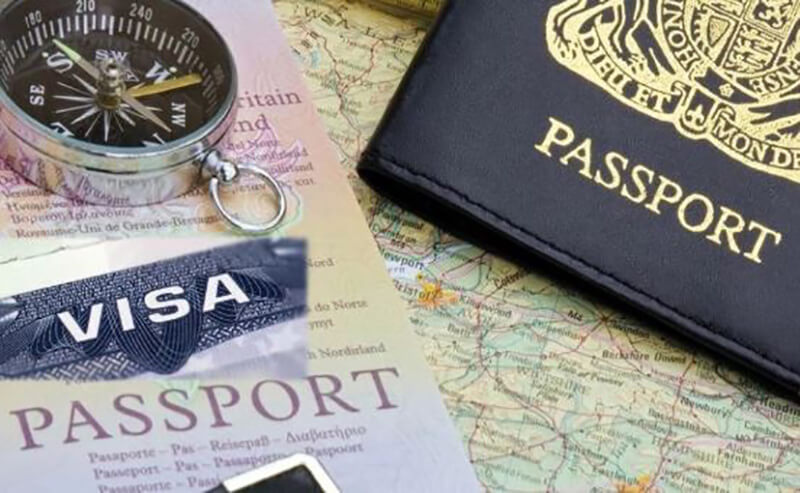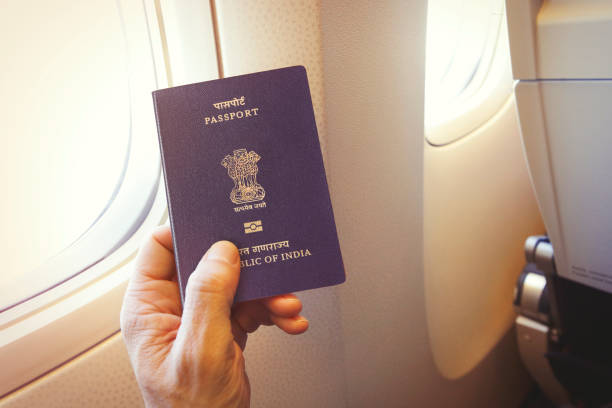For many countries, it is easy enough to visit the country and obtain a visa on arrival but for India, it can be a little more complicated. This article will help you understand the different kinds of Indian visas available so that you can make an educated decision.
Introduction
If you are an Indian Visa for German Citizens looking to visit India, you may be wondering what visa requirements you need to meet. In this article, we will outline the various types of Indian visas that are available to German citizens, as well as the required documents and applications.
Here are the different types of Indian visas that are available to German citizens:
1. Tourist Visa: This visa is valid for a maximum of 30 days and can be issued on arrival in India if you are visiting for tourism purposes only. You will need to provide your passport information, a travel document (i.e. airline ticket), proof of funds ( preferably in the form of an international bank statement), and your hotel reservation confirmation.
2. Business Visa: This visa is valid for a maximum of six months and can be issued on arrival in India if you are travelling for business purposes only. You will need to provide your passport information, company registration certificate or letterhead, proof of funds ( preferably in the form of an international bank statement), and your business invitation letter from a registered company or an official body such as the Indian embassy or consulate.
3. Student Visa: This visa is valid for a maximum period of 6 months and can be issued on arrival in India if you are travelling for educational purposes only. You will need to provide your passport information, passport photo, proof of funds ( preferably in the form of an international bank statement), enrolment certificate from your school or college, Indian Visa for Canadian Citizens
What You Need To Know About The Different Visa Types
There are different visa types for Indian nationals traveling to Germany, depending on your purpose of stay and your nationality.
For tourist purposes, the most common visa type is a Tourist Visa. This allows you to stay in Germany for up to 90 days, with the possibility of Extensions. However, note that you will need a valid passport and proof of financial stability, both of which can be difficult to obtain if you don’t have German residency.
If you’re an entrepreneur or investor looking to start or invest in a business in Germany, you may be eligible for the Investor Visa. This visa allows you to stay in Germany for up to 3 years, with the possibility of an extension. You will need evidence that you have enough money and experience to invest in Germany, as well as proof that your business plan is sound.
Finally, if you are a family member of a German citizen or resident, you may be able to apply for a Family Reunification Visa. This allows you and your family members to live together in Germany indefinitely as long as all members of the family are registered and have valid visas.
The German Visa Process
The German visa process for Indian citizens is fairly straightforward. However, there are certain requirements that you must meet in order to be issued a visa. In addition to having a valid passport, you will need to provide proof of your financial stability and health insurance. Additionally, you will need to show evidence that you will not be out of pocket while living in Germany. Finally, you must have a job or scholarship lined up upon arrival in Germany.
What To Do If Your Visa Application Is Denied
If you want to stay in Germany for more than 90 days, you will need a visa. You can get a visa if you are a citizen of India, China, the Russian Federation, or Vietnam.
To get a German tourist visa, you must have a valid passport and tickets out of the country. You will also need proof that you have enough money to support yourself while in Germany and that you will not be staying in Germany permanently.
If your visa application is denied, there are some things that you can do to try and get the visa again. You can contact the German consulate in your home country or go to the embassy in your home country if you are not able to contact the consulate.
Conclusion
If you’re a German citizen and you want to visit India, then you’ll need to apply for an Indian visa. Here are the basics of what you’ll need to know in order to apply: your passport number, your expiry date, the page of your passport where your photo appears, your nationality, and the length of your stay. Once you have all of this information, it’s time to start filling out the application form. Make sure to include any supporting documents that will help prove that you meet the requirements of a visa applicant and that there is no danger posed by you during your stay in India.




